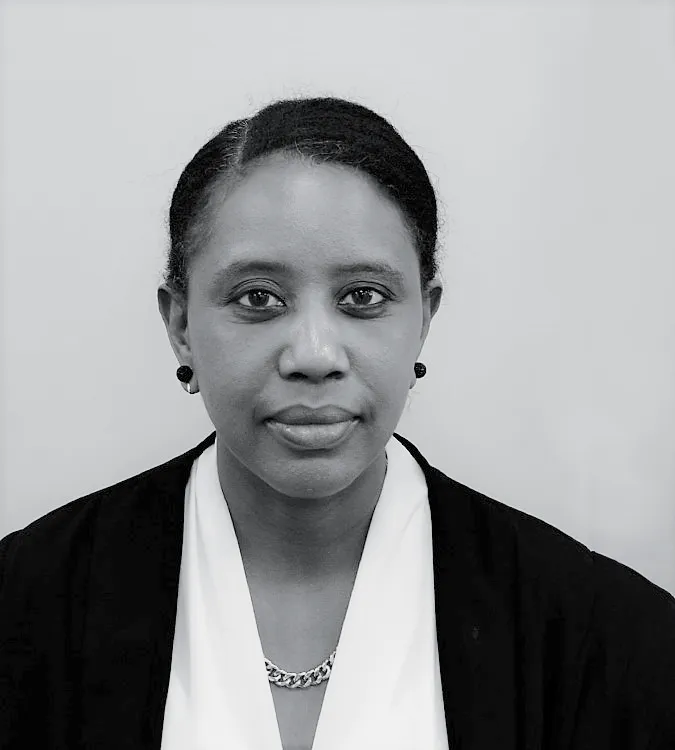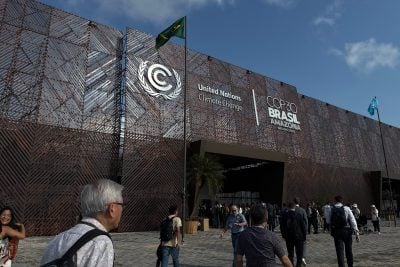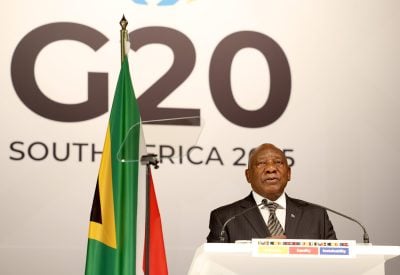Jim O’Neill coined the acronym BRICs (Brazil, Russia, India, China) more than 20 years ago in a seminal paper he wrote while chief economist of Goldman Sachs. In 2015 he was appointed to the UK House of Lords and took up a post at the UK Treasury under the Conservative George Osborne; he now sits as a “cross-bench” peer. Now chair of Northern Gritstone, an investment company based in the north of England, he sat down for a wide-ranging conversation with Dr Desné Masie, chief economist at IC Intelligence, about global trends and how they affect Africa.
It is so interesting how the BRICS acronym has come into common usage and has become a bona fide bloc. But do you think it is still meaningful, given it was meant to describe a set of attributes that have now become quite divergent?
Lord Jim O’Neill: By definition, yes, it is meaningful. Martin Wolf wrote about it just yesterday. It’s a group that meets every year. And they’re about to meet again. And very interestingly, they are considering expanding it. Obviously, it has persistence. Whether the economic performance of the BRICS countries (now an organisation that also includes South Africa) is as we postulated it could have been is an entirely different matter. The answer to that is no, because both Brazil and Russia, after a fabulous first decade, had a disastrous second decade. And if you look where they are compared with what we, or I, said, they could [have been], China has done better than I assumed. India has done nearly as well. Russia has been very disappointing. South Africa… dreadful.
Do you think the BRICS will eventually rival the G7 on the global stage?
Economically, it already does. I think we have the data. Last year’s GDP data shows that collectively they are now, in purchasing power parity (PPP) terms, already bigger than the G7. So economically, clearly. By the end of this decade, China is going to be pretty close to the size of the US; India is going to be close to overtaking Germany. So two of the biggest four economies in the world are two of the BRICS, despite how disappointing Brazil and Russia have been.
Politically, yes again, linked to the fact that somebody like Martin Wolf wrote about it yesterday. To some degree, the G7’s own behaviour is, in a way, elevating the importance of the BRICS more. I think if I go right back to my initial paper, I cannot believe how narrow-minded or naive leaders in the G7 countries are.
The whole idea that this group of seven “industrialised” or “more developed” or “earlier developed” countries can run the world is embarrassing. Because, first of all, their share of the world GDP has declined. Japan’s not shown any net increase in its GDP for 20 years. Italy virtually never grows. So this idea that they are some kind of thing for the whole world to follow [is erroneous].
And then on top of it, effectively it’s a hostage to whatever Washington wants. So how do you solve the mammoth global issues of our time with just those guys. I mean, it’s embarrassing and that’s quite depressing, because the whole reason why I created the BRICS was to suggest we needed a better form of global government than the G7.
Does the BRICS bloc present an opportunity for an increasingly strategic Africa to renegotiate a new vantage point of power in relation to the G7 or does it present new dangers for Africa?
Probably both. So, obviously three things follow. Despite the BRICS, the reality is that a lot of it is symbolism. Tell me something that China and India ever agree on. And I’ve just written something that’s yet to be published about another question you have – about the replacement of the dollar. It’s a good job for the West that China and India never agree on anything. Because if they did the BRICS would definitely be taking over a lot of things [from the West] and its influence everywhere, including Africa.
“It’s a good job for the West that China and India never agree on anything.”
But, as anybody who looks at these things is aware, it seems to be very difficult for China and India to treat each other as anything other than a rival. So that’s the first point. The second point is, of course, from what I could see, and this is definitely happening today, is that three of the BRICS try to court influence in Africa. Whether it be Russia – look at the highly controversial debate about Russia and South Africa right now and the arms.
Obviously, look at China in terms of how much money it’s been investing in African countries, and India has a more historic relationship, especially with South Africa because of Gandhi. So, of course, the BRICS are a very significant influence. The whole reason why China effectively invited South Africa in was to develop a relationship with the whole of sub-Saharan Africa.
When I said both [a danger and an opportunity], the downside to that is of course again topical with South Africa today. Some of these countries have got preferential status from important countries in the G7, particularly the US. And if they’re going to align more and more with the BRICS, it is probably the case, especially with the current mentality of Washington, that the US will remove some of those preferential treatments. It’s worrisome.
Can the idea of a single currency for the BRICS fly?
Well, it is ridiculous. I’ve already said that China and India can’t even really agree on basic things like a peaceful border. I mean, how on earth can people seriously believe these guys are going to introduce a shared currency, I mean, who would run it? Would there be a BRICS central bank?
“How on earth can people seriously believe the BRICS are going to introduce a shared currency?”
It’s amusing. Sorry. I just think it’s fanciful. What is more feasible and more likely is that at some point in the future, the RMB [renminbi], and possibly the rupee are going to be much more important currencies for the world. But the idea you have a shared BRICS currency, this is just the kind of nonsense that they symbolically say because it just sounds good. The dilemma for them is that people with experience and those that are usually looking at these issues are like, what are you actually talking about? How do you get a BRICS currency? How?
What you’re saying is, in terms of de-dollarisation, the renminbi being the preferred global currency is a greater possibility. The rupee could become more prominent.
I have published on this topic endlessly, and I have done so again recently. I’ll say three things.
First of all, as experienced by the UK at some very unpredictable moments in time, if you are no longer the biggest economy in the world, your currency stops being the most important. So if China ends up being a lot bigger than the US, then probably, the dollar won’t be what it is today. But that’s the reality of life.
The second point, however, is that, for 40 years, I’ve heard people say that the yen was going to take over, then the euro was going to take over. And now we have this thing about “the bric”, but really, the renminbi. And the reason why the yen never took over was because Japan didn’t become that big. And the reason why the euro never took over was because the Europeans didn’t want the responsibility that goes with being a reserve currency. And it’s not obvious to me that China wants that responsibility. Certainly not now, and maybe not in the foreseeable future, because it is a responsibility.
You’ve got to allow and encourage people anywhere in the world to hold their wealth with confidence in your currency – not having any fear that something might happen that they don’t expect. You’ve got to have some significant degree of transparency as well as liquidity. And I’m not sure the CCP is in the position to do that. There are still significant controls on what Chinese individuals can do with their savings, so at some point that might change – but if it doesn’t, then how can the RMB be this global reserve currency? How?
Intellectually – and again, this is something I’ve just written about recently – for many, many years some leading Chinese scholars have argued that the IMF Special Drawing Right (SDR) should become the world currency, and that would make the world a lot fairer because the dominance of the dollar is clearly problematical for the world [economic] cycle. Because effectively, every time the Fed decides to tighten up, it immediately puts pressure on many emerging economies because of the rising dollar and higher rates.
And the other side of it, which people don’t talk about, but is equally true, is when the Fed then suddenly decides to start cutting interest rates dramatically, the same thing is true in reverse. And so it’s not, in my view, a permanent stable position for the world, and we probably need some different monetary system in the future. But the idea that one other currency is going to replace the dollar: I’m not sure that that would make it any better either, because then everybody becomes completely dependent on the monetary policy of China. And so why is it actually any better? Maybe better for China, but why is it any better for Africa?
We are now in this global high inflation environment. Can developed markets withstand the direction of travel?
Listen, economics is a social science. We don’t know the answers. So my answer is: I don’t know. I really don’t know. I hope so. But our central banks are being caught out. They’ve made some big mistakes.
“Our central banks are being caught out. They’ve made some big mistakes”
The core of it is too much groupthink. They persuaded themselves that because inflation was so low for so long, it was always going to be so low. And with it, they pursued this so-called “quantitative easing” for far too long. In fact, not only has that had some impact on why inflation’s picked up, but it’s also caused damage, in terms of perceptions about wealth inequalities. Because while it was going on, we saw these enormous improvements in financial assets. So owners of financial assets got wealthier at the same time as people that had only income from jobs weren’t getting any wage increases.
So the central banks are guilty of being nowhere near as smart as they think they were, and they’re trying to catch up. And so it is interesting that inflation has come down quite a bit in other countries. So you would assume eventually it’s going to come down here, but the evidence is very disappointing.
What does the move to clean energy mean for development and for the BRICS specifically?
Again I would say there is a difference between the reality and the rhetoric. So it’s amongst my other criticisms of the BRICS as a political group, that they should be trying to seriously pursue an alternative energy strategy. China, on its own, is. But from what I can see of South Africa it is so chaotic – is there any strategy about anything?
And then, if you look at Russia, the last thing they want to do is to lose fossil fuels because that’s where they get their income from. And there is an argument to be made. I digress. In 2008, I was invited by the Russians to do a special presentation for the famous St Petersburg Summit. It’s like the Russian Davos. And I did it for the whole audience, and it was about where Russia would be in 2020.
“If you look at Russia the last thing they want to do is lose fossil fuels”
And they were annoyed with what I said because I didn’t assume that Russia would be in the top five economies of the world – because I didn’t assume that oil prices would keep rising. And their reaction to what I said was very revealing and it made me think, hmm, if oil prices don’t keep going up, Putin’s not going to be as popular. Because in the first part of the BRICS people thought Putin was an economic genius. But it was because oil prices went up for eight years. And then I thought how does he stay so popular? And the answer is, he becomes more and more nationalist.
And I often think the reason why he does all these crazy things is because it plays to the sense of Russian pride. But in the long term for Russia, it is ludicrous because one of the very interesting things that’s happening, from what I can see, is there is an acceleration of energy efficiency and a move to alternatives in the West. Particularly in Europe. Who would’ve thought that we’re sitting here talking and that European gas prices are significantly lower than they were a year ago? And that can only be because European businesses and consumers are using energy more efficiently and using alternatives. So, of course there should be a BRICS strategy on alternative energies, but where is it?
There have been a lot of recent oil and gas finds in Africa promising prosperity while Europe pursues renewables under a New Green Deal. Are African countries going to be left with stranded assets that they cannot sell in the global economy?
It’s very difficult because I think African people are right to think they want the prosperity that other nations have enjoyed, and so you want to develop what you’ve got. But there is something that I am sure you know, the commodities curse.
It’s far from clear that commodity producers are the most successful countries. I once had the privilege of meeting [Ariel] Sharon, the Israeli leader. And he said to me one of the most profound things I’ve ever heard a leader say. He said to me: “What do you think is the greatest strength we have in Israel?” And he’s quite an intimidating guy. He said: “Nothing. We have no resources.”
So that has forced Israel to use their brain. I think it’s very, very profound. If you look at the most successful countries in the world, with the exception of the US: South Korea? no commodities. Japan, no commodities. Sweden, all of Scandinavia: no commodities. So African countries should – and it’s easy for me to say, but it’s the same that I say to the Brazilians and the Russians – reduce their dependency on resources.
Nigeria is really an illustration of the commodities curse. I did this extremely fun radio documentary for the BBC about the so-called MINTs. I spent a week in Nigeria recording this documentary… We had material to do three documentaries because Nigeria’s such a crazy, fascinating place. But what is clear, is that it is one of the biggest examples on the planet of the commodities curse.
This article originally appeared in IC Intelligence Insight 09 – The New Geopolitics. Click to read the full insight.
Want to continue reading? Subscribe today.
You've read all your free articles for this month! Subscribe now to enjoy full access to our content.
Digital Monthly
£8.00 / month
Receive full unlimited access to our articles, opinions, podcasts and more.
Digital Yearly
£70.00 / year
Our best value offer - save £26 and gain access to all of our digital content for an entire year!

 Sign in with Google
Sign in with Google 



